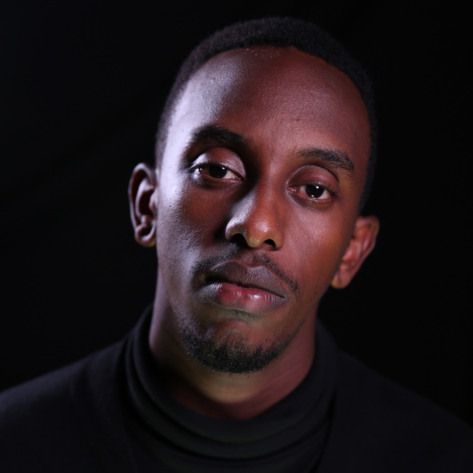Mirror IV (v)
Collaborators: Ruwanthie de ChickeraDate: 13th July 2018
The generation that inherited the unimaginable. How do communities – across generations – deal with the passing on of violence? What is passed on between the generations – from parents to children? How does the current younger generation deal with the experiences of their parents’ generation? As people return to a shared space and a shared future, how do they deal with a conflicted past?
Mirror Legacy is a double screen visual art installation that explores the dynamics of inherited memories of violence, through the performances of six young Rwandan actors, belonging to the post-Genocide generation. It was originally presented as part of the Empathy and Risk project at the 4th Edition of the Ubumuntu Festival.
For the development of Mirror:Legacy – Six young Rwandan actors, belonging to the post-Genocide generation, participated in a workshop, which led to the performances of these monologues.
They were all given the identical monologue to rehearse and perform to camera, with the following instructions.
'You are talking to one of your childhood friends about your father and his/her father. The two men knew each other, but they were on either side of the conflict during the Genocide. And during the 100 days of conflict, these two men clashed.
You saw the clash. It changed the way you remembered your father and the way you remembered your father’s friend
You talk to your friend about the memories you have of his/her father. And while you do this, you can also not help remembering your own father.'
Three of the six actors were told that their character’s father was a victim of the Genocide. The other three actors were told that their character’s father was a perpetrator. They were not aware of what the other actors had been told.
They were asked to perform their own monologue. They were also asked to listen and respond to the monologue of one of the other actors.
Throughout this process the actors were interviewed, in order that they might reflect on their ability to relate the same monologue to a child of a victim and a child of a perpetrator and how this could be understood within a context of shared legacy of a conflicted past.
The question remains, when watching these performances, if it is possible to distinguish between the actors playing the children of victims and the children of perpetrators.
Materials:
MacMini, Yamaha Speakers, Matrox DualHead2Go Dp Edition, Custom fabricated screens and QLab session.
Cast: Monologues performed by Eric Nagangare, Umuhire Eliane, Kayigi Fred Andy, Perle Divine Isimbi, Ines Ruhamya Nathan, Amanzi Ndoli Yannick Nicholas
Production Team: Coordinator - Innocent Munyashuri. Camera - Prauda Buwaneka, Pramila Wimarshana. Production - Piumi Wijesundara, Sanjeewa Upendra, Akalanka Prabharshana, Duminda Sandaruwan, Indika Lakmal




